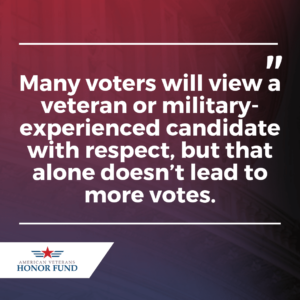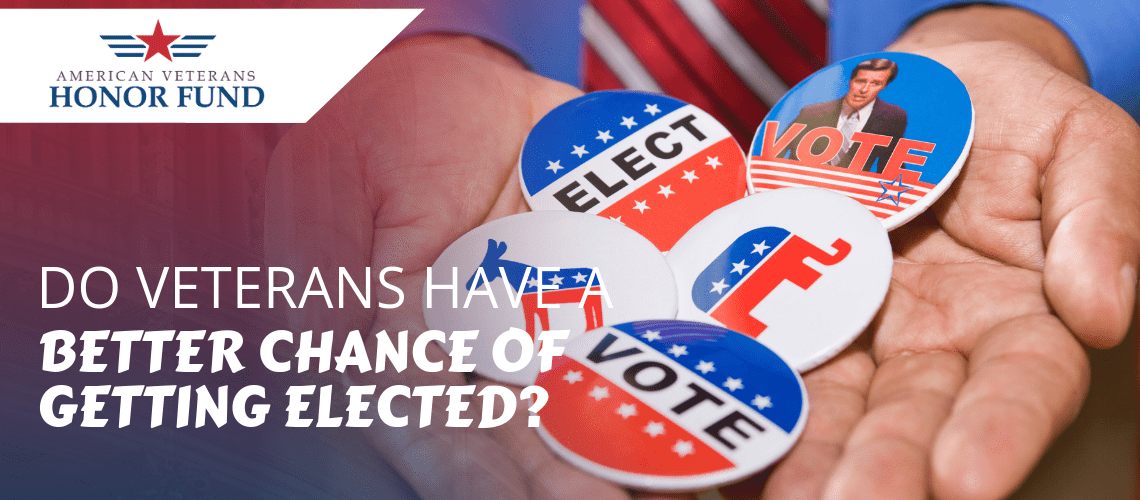It’s no secret that the general public holds the U.S. military in high esteem. This can be a big advantage for any military veterans considering running for office, but is it enough to get you elected?
The approval rating for the military and its veterans is currently much higher than the approval ratings of Congress and most elected representatives. This is a reflection of the respect that veterans have earned for their hard work and sacrifice, and it can be a great asset for any veteran running for office. Let’s be honest, it certainly doesn’t hurt!
However, despite this massive advantage, it’s by no means a “golden ticket” to getting elected. Many veterans still face an uphill battle when running for office, particularly at the state and federal level. Why is this?
Military Veterans and Election Results

In 2017, Jeremy Teigan did a deep dive into the concept of military veterans and their election results for the Washington Post. Despite the declining number of veterans serving in Congress since the 1970s, these individuals still have plenty of potential and experience backing them up – so how can veterans be more successful in their election campaigns? Teigan wanted to find out what the numbers had to say.
If you’re considering a run for office at the local, state, or federal level, it’s important to know how your district leans so you know what you’re up against. In Teigan’s research, he found that many veterans were struggling to gain traction when running as Democrats in Republican-leaning districts. The same can also be true for veterans running as Republicans in Democratic-leaning districts.
Despite having the advantage of honorable military experience on their side, many veterans were running in districts where they the other political party had a 3 percent or larger advantage at the start of the campaign. Combine this with the added battle of running against an incumbent and the odds were definitely not in their favor.
In general, veteran hopefuls tend to do better in “purple” states that have shown support for both Democratic and Republican candidates and who tend to favor less polarizing platforms.
Does Military Experience Really Lead to More Votes?
Although it can be a big difference maker during primary elections, being a veteran does not provide a vote “bump” in general elections the same way a party affiliation does. Many voters will view a veteran or military-experienced candidate with respect, but that alone doesn’t lead to more votes.
In districts where the odds of winning are even for both parties (“purple districts”), then military experience can be an asset to be leveraged during the campaign in order to help boost respect and credibility. However, the data shows that if you are a veteran running uphill in a district that favors the other party, military experience has not proven to be enough to fill the starting vote gap.
For veterans, having a presence in politics is important and often serves as an act of “Second Service” once they have completed their tenure in the military. But where does a veteran even begin to start the process of running? Read here.

